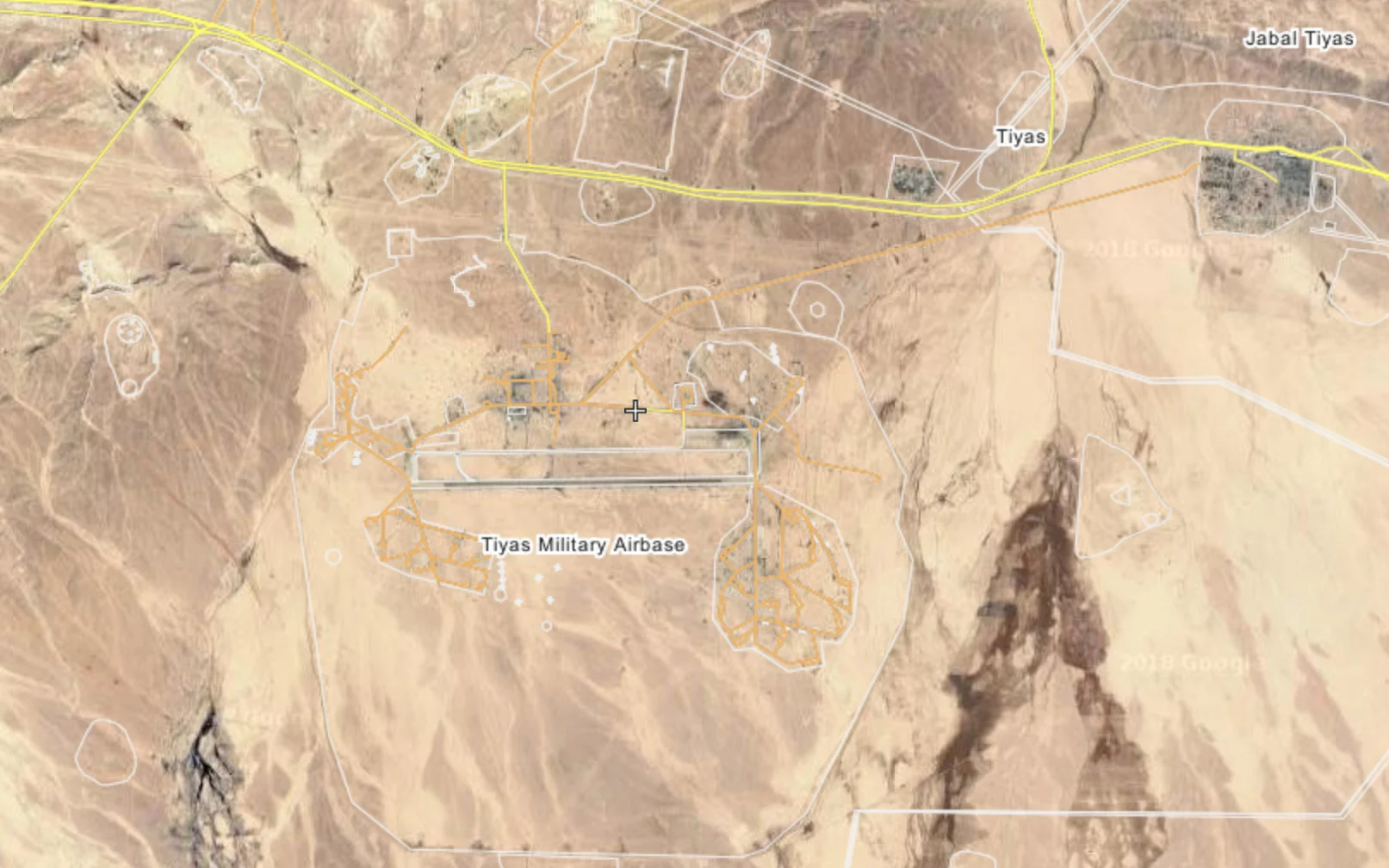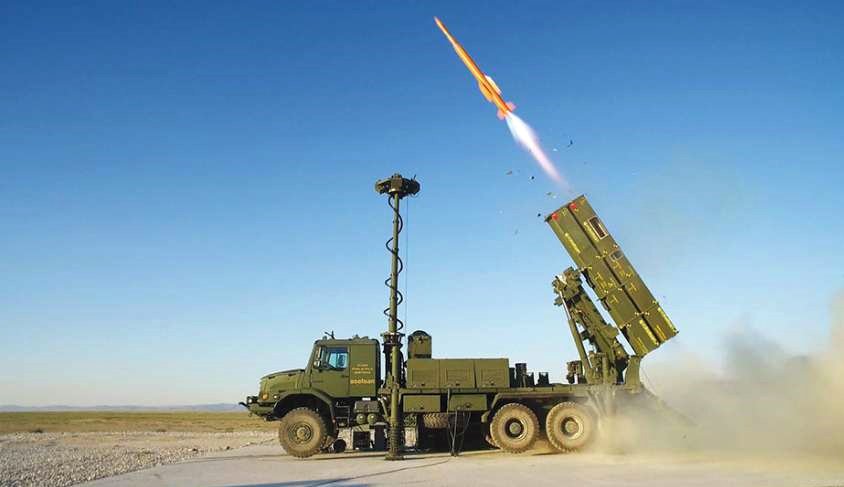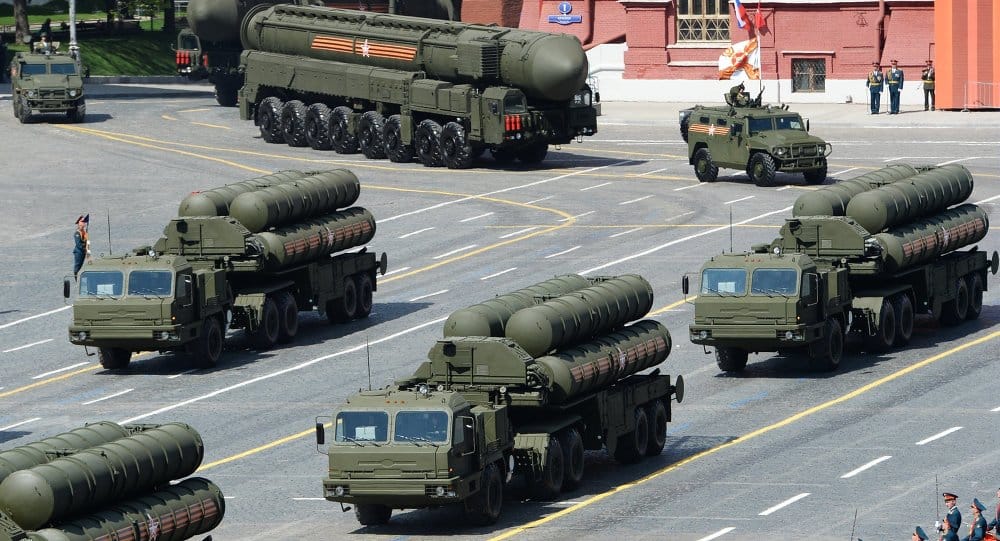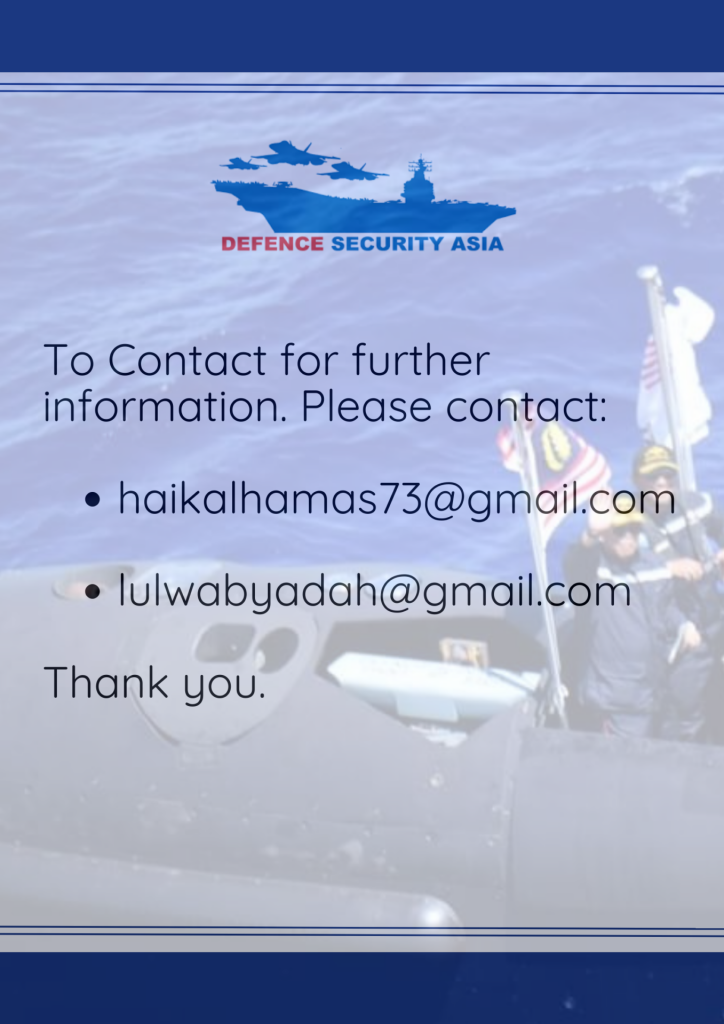Turkiye Eyes Control of Syria’s T4 Air Base in Bold Power Play, Triggering Alarm in Israel
This development has set off alarm bells in Tel Aviv, as Ankara prepares to convert T4 into a forward operating base for integrated air defence—potentially altering the airpower dynamics over Syrian skies.
(DEFENCE SECURITY ASIA) — In a bold move with sweeping geopolitical implications, Turkiye is reportedly taking control of Syria’s Tiyas Air Base—better known as T4—and laying the groundwork to deploy a sophisticated air defence architecture at the site.
Construction activities to transform the facility into a permanent Turkish military presence are said to be progressing rapidly, signalling Ankara’s intent to entrench itself deep within the Levant.
According to sources cited by Middle East Eye, Turkiye has already begun the initial stages of assuming control over the T4 air base near Palmyra, a strategic location historically used by Iranian and Russian forces.
This development has set off alarm bells in Tel Aviv, as Ankara prepares to convert T4 into a forward operating base for integrated air defence—potentially altering the airpower dynamics over Syrian skies.
Behind this strategic manoeuvre lies a broader political realignment following the collapse of President Bashar al-Assad’s regime in December, which has plunged Syria into a transitional phase of power restructuring.
Since Assad’s fall, Ankara has engaged in discreet negotiations with Damascus’ interim authorities to forge a bilateral defence pact—an agreement that could see Turkiye assume the role of protector for Syria’s nascent administration, which currently lacks a viable military structure.
Although Turkish officials initially denied any plans for boots on the ground in Syria, branding such a move as premature, sources suggest that clandestine talks between the two governments have continued unabated.


At the heart of Ankara’s defence posture is the planned deployment of the Hisar-series surface-to-air missile (SAM) systems—most likely the medium-range Hisar-O or the extended-range Hisar-U—to enforce airspace denial around the T4 base.
In addition, Turkiye aims to implement a layered air defence shield that could include the upgraded Hisar-O+, the radar-homing Hisar-RF, and the flagship Siper long-range SAM system—all of which are domestically produced by Aselsan and Roketsan, and represent a cornerstone of Turkiye’s bid for defence autonomy.
In a more provocative dimension, Ankara is also said to be considering the temporary deployment of Russian-built S-400 Triumf systems at T4—pending Kremlin approval—marking what would be the system’s first operational use beyond Turkish borders.
The integration of these SAM platforms would give Turkiye a formidable anti-access/area denial (A2/AD) capability, allowing it to exert de facto air superiority over central Syria and impose restrictions on hostile air activity.
Supporting these defences, Turkiye plans to deploy a fleet of unmanned aerial systems (UAS) with ISR and strike capabilities, likely including the combat-proven Bayraktar TB2 and the high-end Akinci UCAV, which have already reshaped regional battlefields from Libya to Nagorno-Karabakh.
Strategically, this military build-up serves multiple objectives: deterring Israeli air strikes in the post-Assad vacuum, countering residual ISIS insurgent activity, and filling the geopolitical void left by the partial withdrawal of Russian and Iranian assets from Syria.

With layered air defences and loitering munitions in place, Israeli freedom of action—long enjoyed in the permissive skies over Syria—could be significantly curtailed.
While Ankara frames its intervention as a stabilising force aimed at regional security, Israeli intelligence and defence officials interpret Turkiye’s expanding footprint as a direct threat to its strategic depth and operational freedom.
A senior Israeli political source, quoted by Maariv, warned:
“Israel has no interest in a confrontation with Turkiye. We still enjoy operational freedom in Syrian airspace.”
However, the same source acknowledged that this freedom is under increasing pressure:
“It is clear that Turkiye is steadily entrenching itself in the region and attempting to limit Israel’s strategic reach.”
A senior Israeli defence official, speaking to The Jerusalem Post, described the possibility of a permanent Turkish airbase in Syria as unacceptable:
“If Turkiye sets up an airbase in Syria, it will compromise Israel’s freedom of action. This is a potential threat that we oppose.”

He added that the recent Israeli air strikes on the T4 and Palmyra bases were calculated signals to Ankara:
“Our strikes targeted runways and strategic assets to send a message—we will not tolerate any restriction on our operational air freedom.”
Since Assad’s ouster, Israel has stepped up its air campaign against Syrian military sites, with a notable surge in sorties and precision strikes near the T4 facility.
In a parallel diplomatic offensive, Israeli officials have been lobbying Washington to greenlight Russia’s continued military presence in Syria—particularly at the Khmeimim air base and Tartus naval facility—as a counterweight to rising Turkish influence.
Israeli strategists argue that Turkiye’s expanding sway in Syria represents a structural threat to regional equilibrium, potentially destabilising not only Syria but the broader Eastern Mediterranean.
In February, Tel Aviv reportedly presented formal proposals to the United States, urging that Russia be permitted to maintain its military bastions in Syria—yet the Biden administration has so far remained noncommittal.

U.S. officials have attempted to reassure Israeli counterparts that, as a NATO ally, Turkiye could serve as a credible security partner in the region.
Nevertheless, Israeli policymakers remain deeply sceptical, viewing Ankara’s ambitions as a source of instability rather than balance.
For Tel Aviv, the rise of a militarised, post-Assad Syria under the patronage of Turkiye marks a new and unpredictable chapter in Levantine geopolitics—one that could shift the axis of regional power and drag rival actors into a deeper strategic contest.
— DEFENCE SECURITY ASIA


